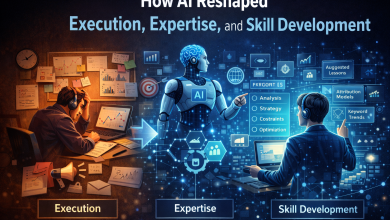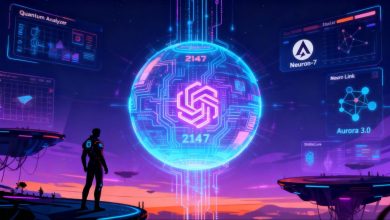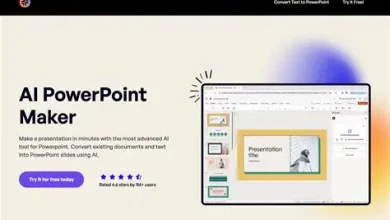
The pervasive influence of Artificial Intelligence is undeniably reshaping industries, transforming traditional roles, and redefining the very nature of work. It’s no longer a distant future; AI is here, driving unprecedented shifts in productivity, decision-making, and creativity across enterprises of all sizes. For businesses looking to thrive in this evolving landscape, merely understanding AI’s capabilities isn’t enough; proactively identifying and acquiring the right human skills is paramount.
The common narrative often centers on AI replacing jobs. However, a more insightful view reveals that AI is fundamentally augmenting human capabilities and changing job responsibilities. Indeed, the future of jobs report from the World Economic Forum consistently highlights that while AI will automate certain tasks, its primary impact is expected to be through augmentation, enhancing human productivity and creating new types of roles.
The skills required for success are shifting, demanding a nuanced blend of technological fluency and uniquely human attributes. Companies must adapt their talent acquisition strategies to build a workforce truly ready for this new era.
Beyond Automation: Skills for the AI-Driven Workforce
As AI handles routine, data-intensive tasks and automates increasingly complex processes, the value of human skills that complement, oversee, and innovate with AI will dramatically increase. Here are key skill categories business leaders should be prioritizing in their hiring efforts right now:
- Cognitive Agility & AI Literacy
Success in an AI-powered world demands a certain intellectual dexterity. It’s not just about coding; it’s about intelligent interaction with AI systems.
- AI Literacy: A foundational understanding of how AI works, its capabilities, inherent limitations, ethical considerations, and potential applications within specific business contexts. This empowers employees to leverage AI tools effectively and safely.
- Data Fluency: The ability to interpret complex data insights generated by AI, ask discerning questions of that data, and understand data governance principles. Decision-making will increasingly be data-informed, requiring human oversight and critical analysis.
- Prompt Engineering & Human-AI Interaction: As AI interfaces become more natural, the skill of effectively communicating with AI models to elicit precise and desired outputs and collaborating seamlessly with AI tools will be a core competency.
- Amplified Human-Centric Capabilities
Paradoxically, as technology advances, the uniquely human skills, those difficult for AI to replicate, become exponentially more valuable.
- Critical Thinking & Complex Problem-Solving: The ability to analyze ambiguous situations, synthesize information from diverse sources (including AI outputs), and solve novel, unstructured problems that require nuanced judgment.
- Creativity & Innovation: Generating new ideas, developing original solutions, and thinking divergently. AI can assist, but human ingenuity remains the catalyst for true breakthrough innovation.
- Emotional Intelligence & Collaboration: Understanding and managing one’s own emotions and those of others, fostering effective teamwork, and building strong relationships in increasingly hybrid or remote environments. AI augments tasks, but human connection drives culture and true collaboration.
- Ethical Reasoning & Judgment: Making decisions that align with organizational values, regulatory compliance, and societal good, particularly concerning the responsible and unbiased use of AI technologies. This human oversight is crucial for trust and long-term sustainability.
- Adaptability & Resilience: The capacity to quickly learn new tools and processes, embrace continuous change, and navigate uncertainty with a growth mindset in a rapidly evolving technological landscape.
Strategic Imperatives for Acquiring These Skills
Companies face a dual challenge: thoughtfully developing their existing workforce and strategically bringing in new talent.
- Invest in Continuous Learning: Prioritize learning and development programs to reskill and upskill current employees in AI literacy, data fluency, and new collaboration paradigms.
- Rethink External Talent Acquisition: Actively seek candidates who demonstrate these vital human-centric and evolving technical skills. Focus on potential, learning agility, and practical expertise as much as traditional qualifications.
Navigating the Global Talent Market for Specialized Expertise
In this era of rapid technological evolution, the demand for specialized tech talent often outstrips local supply. Business leaders are increasingly recognizing that to scale a business by securing the best AI developers, data engineers, and ML & MLOps engineers, looking beyond traditional geographic boundaries is not just an option, but a strategic necessity.
Embracing remote hiring models allows organizations to transcend geographical limitations, tapping into vast pools of highly skilled developers from global tech hubs. The ability to hire without geographical constraints drastically reduces the time and effort traditionally spent on sourcing, as the pool of qualified candidates becomes far larger and more accessible, regardless of location.
Furthermore, the very AI technologies that are reshaping work can also revolutionize the hiring process itself. Leveraging AI-powered profile shortlisting and interviewing can drastically reduce talent acquisition time. These intelligent systems are capable of rapidly sifting through thousands of resumes and professional profiles, quickly identifying top-tier candidates based on a nuanced understanding of required skills, experience, and even indicators of cultural alignment.
This automation of initial screening frees up valuable human recruitment resources, allowing talent acquisition professionals to focus on the more qualitative aspects of candidate engagement, in-depth interviews, and strategic relationship building. The result is a significantly more efficient and effective hiring pipeline, enabling companies to secure critical specialized talent faster and maintain their competitive edge in a global market.
Final thoughts
The future of work, profoundly shaped by AI, calls for a more intelligent, adaptive, and human-centric workforce. Companies that proactively invest in identifying, nurturing, and acquiring these essential skills, from refined technical acumen to amplified human capabilities and a commitment to continuous learning, will be best positioned to innovate, compete, and thrive in the decades to come.
Building this future-ready team begins now, with a forward-thinking approach to talent acquisition. For leaders aiming to access specialized senior developers globally, cost-effectively, and efficiently, exploring global hiring platforms like eDev, which streamline cross-border hiring and management from emerging tech regions, can provide a significant advantage.





